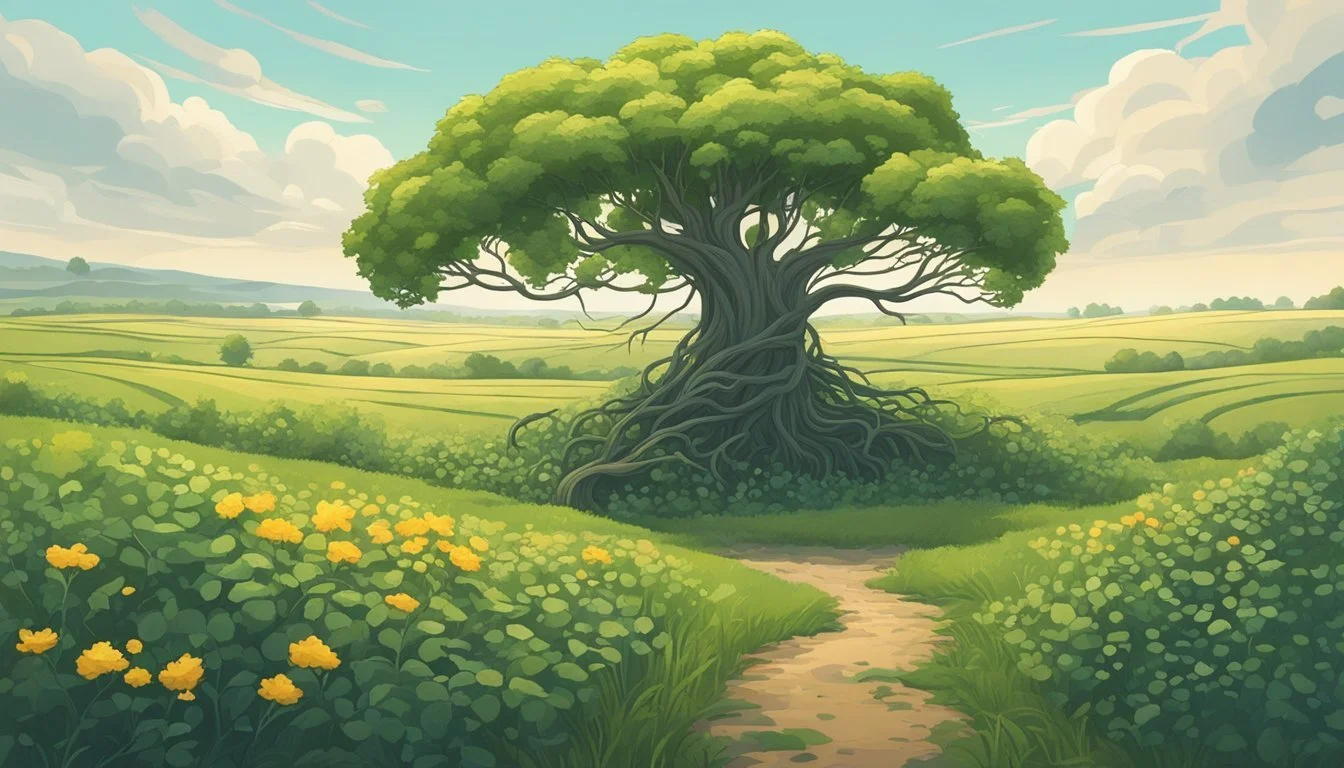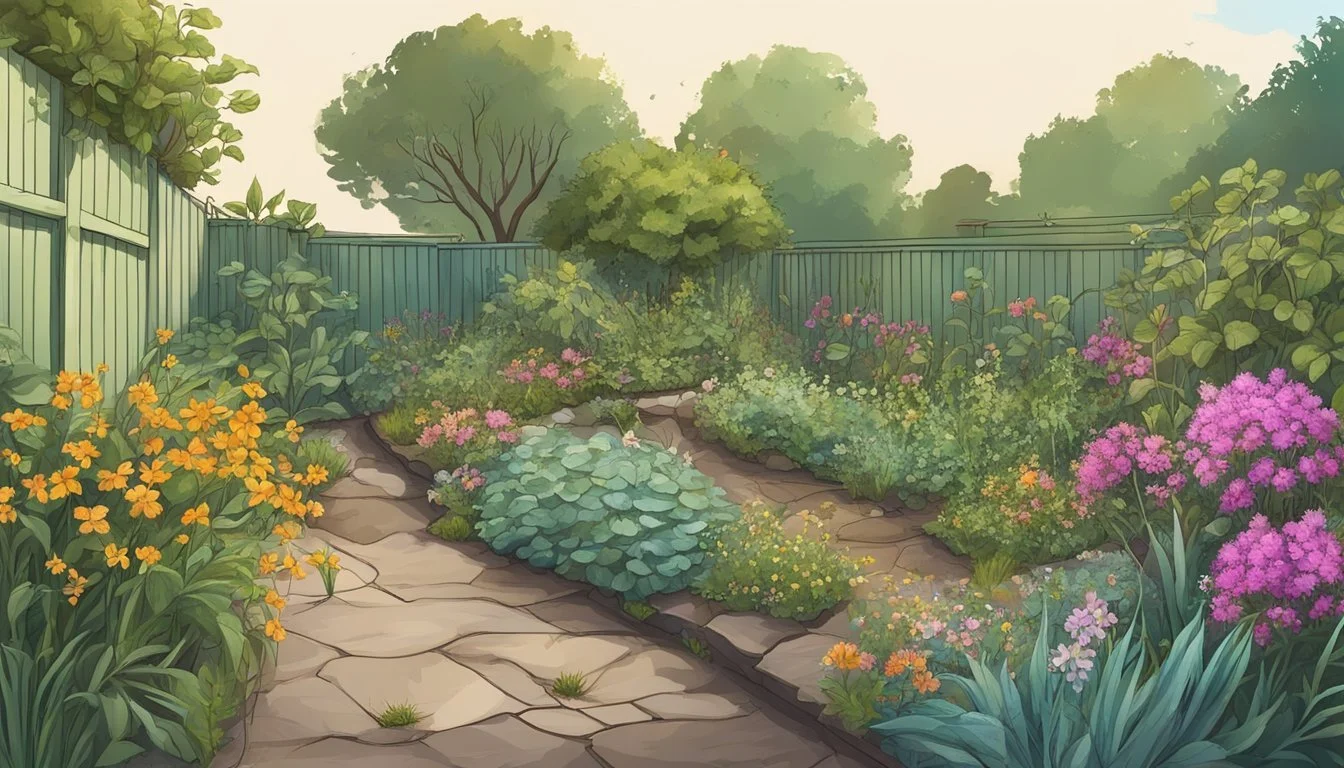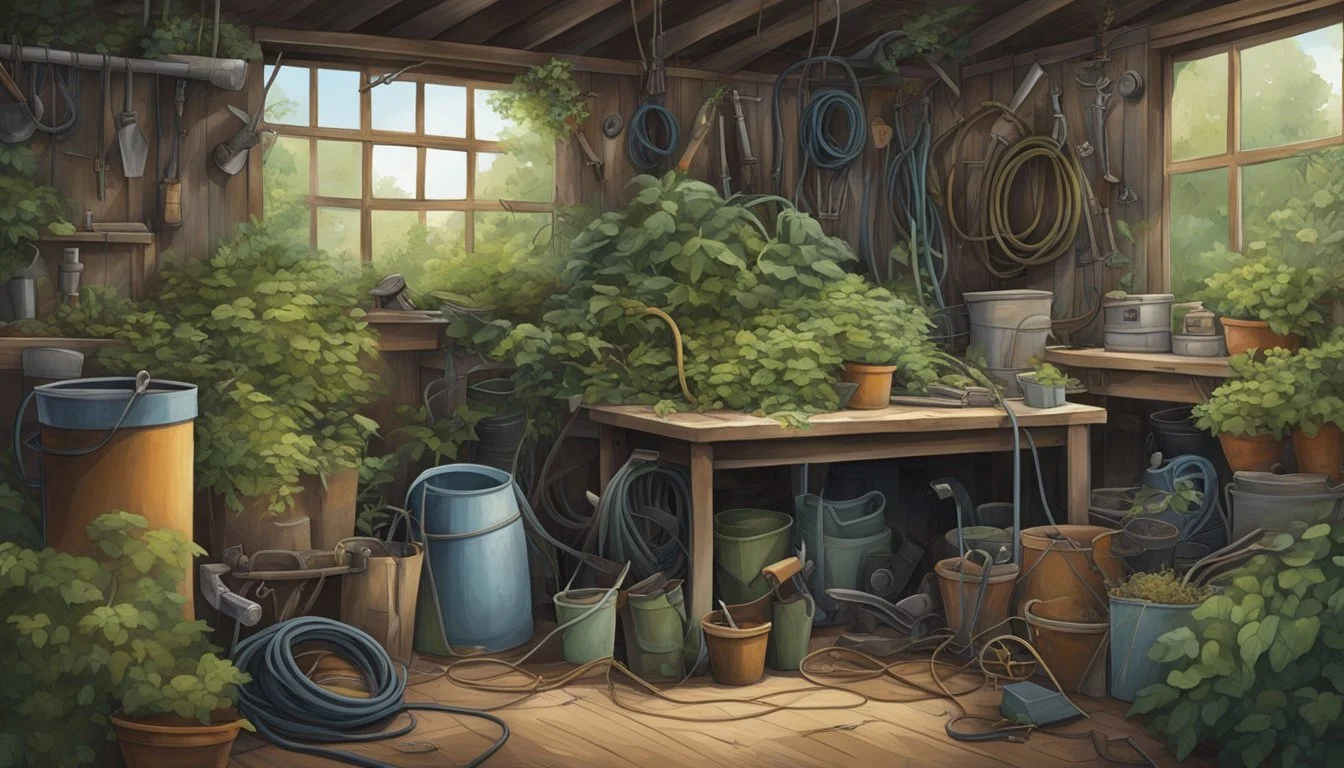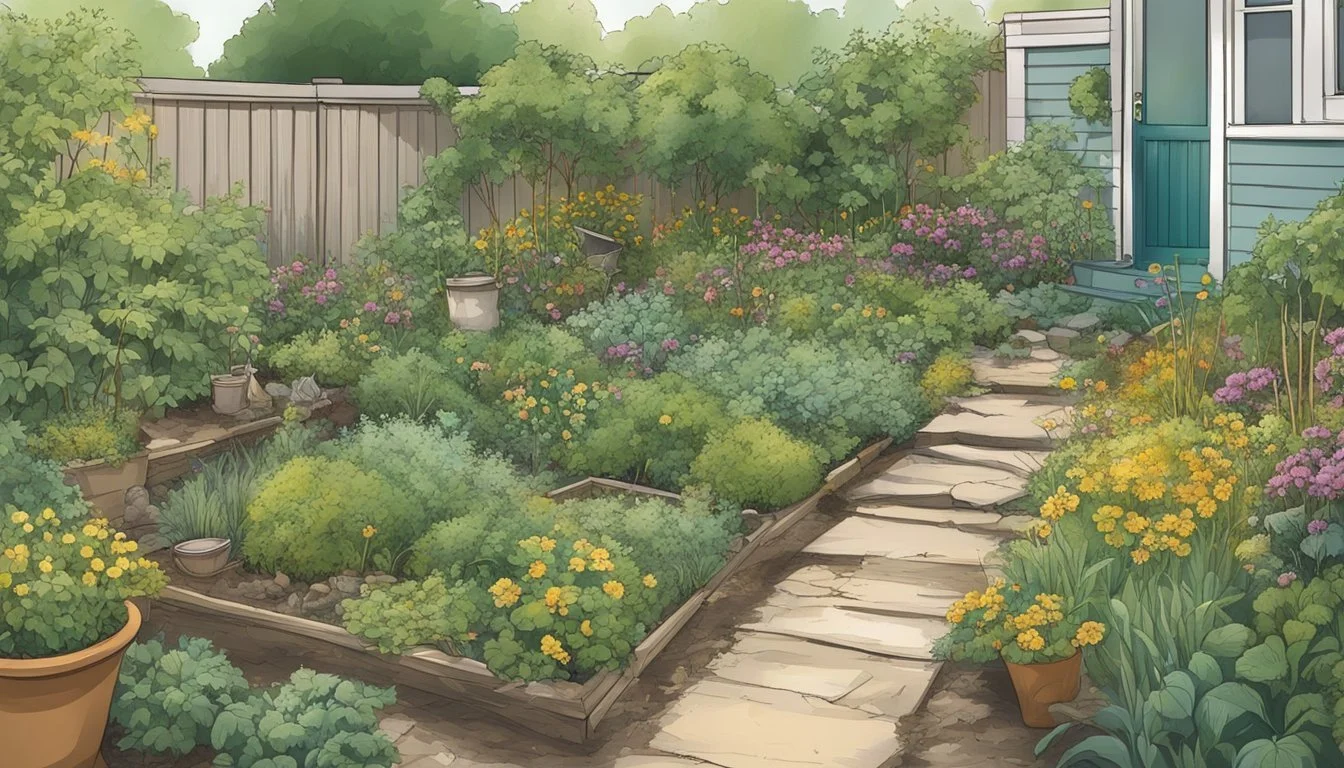7 Ways Trauma Can Impact Your Relationship with Gardening
Understanding the Connection
Gardening can bring immense joy and tranquility to one's life, yet trauma can profoundly impact this otherwise peaceful activity. Emotional and psychological challenges stemming from traumatic experiences might influence how individuals relate to and engage with gardening practices.
Understanding how trauma can affect your relationship with gardening is crucial for harnessing the therapeutic potential of this activity. By recognizing the connection between trauma and gardening, individuals can better navigate their healing journeys and foster a positive, nurturing environment in their gardens.
1) Fear of Open Spaces
Individuals with trauma may develop a fear of open spaces, known as kenophobia. This can pose a significant challenge when it comes to gardening, especially in large, unconfined garden areas.
Kenophobia can provoke anxiety, making the act of stepping into or spending time in an open garden feel overwhelming. The expanse of the garden might trigger feelings of vulnerability and distress.
This fear is often rooted in the trauma response, as open spaces can symbolize a lack of control and safety. For many, this makes the thought of gardening less appealing.
Overcoming this aversion requires gradual exposure and small steps. Starting with container gardening in a controlled, smaller space can be a useful tactic.
Engaging with a mental health professional to address these anxieties is also important. Therapy can provide coping mechanisms and strategies to manage the fear of open spaces effectively.
Gardening in a community plot, where presence of others might offer a sense of security, can also help. Safety and comfort in numbers might mitigate some of the anxiety associated with wide-open areas.
For those struggling with kenophobia, turning gardening into a guided activity with a trusted companion can create a more reassuring experience.
2) Difficulty Trusting Nature
Trauma can deeply disrupt an individual's sense of trust, extending even to their relationship with nature. Manifestations of trauma, such as anxiety or hypervigilance, may lead to a reluctance to engage with the natural world.
Individuals may perceive natural elements, such as insects or changing weather, as unpredictable and potentially threatening.
This hyper-awareness can make the calming aspects of gardening feel inaccessible. For those who experienced unpredictable environments, the uncertainty of nature can feel unsafe. Gardening requires trust in the natural world, an element severely compromised by trauma.
Trauma-Informed Care Practices recognize this challenge. Creating environments that promote safety and trust can make re-engagement with nature possible.
Adjusting gardening practices to include consistent routines and safe spaces can help. Individuals may slowly rebuild trust by experiencing the predictability and cycles of nature in a controlled setting.
3) Avoidance of Plant Care
Experiencing trauma can lead to the avoidance of activities that once brought joy, including gardening. This avoidance may be due to memories associated with the trauma or a general lack of motivation.
Trauma can cause individuals to neglect their plants because caring for them requires emotional energy that they may not currently possess. The simple tasks of watering and pruning can seem overwhelming.
Gardening requires a sense of routine and commitment, which can be challenging to maintain for those coping with trauma. This disruption in routine can result in plants being neglected or abandoned.
The idea of planting and nurturing can be metaphorically tied to personal growth. Trauma may create a sense of stagnation, making it difficult to engage in activities that symbolize progress and life.
It's important for those experiencing trauma to recognize that avoiding plant care is a common response. However, they might find healing benefits in gradually re-engaging with these activities once they find themselves ready.
For further insights into the connection between trauma and gardening, you can explore gardening as therapy for PTSD. Over time, reintroducing small and manageable gardening tasks can help in regaining confidence and emotional stability.
4) Negative Associations with Soil
Individuals dealing with trauma may develop adverse reactions to gardening. Soil can trigger negative associations, as its texture, smell, or sight can evoke distressing memories.
For some, the very act of touching soil may bring discomfort or anxiety. This can stem from past traumatic experiences involving dirt or environments where soil played a part in the trauma.
Soil’s connection to elements like decay or death can also generate strong, unpleasant feelings. This can be particularly true for those who have associated traumatic events with these concepts.
These associations can interfere with the positive effects of gardening. It may prevent individuals from fully engaging with gardening activities or reaping the therapeutic benefits linked to horticultural therapy programs for trauma survivors, such as reduction of stress and anxiety.
5) Hesitation to Visit Gardens
People who have experienced trauma may feel hesitant to visit gardens. This hesitation could stem from a fear of open spaces or a discomfort with nature.
Trauma can create feelings of vulnerability and unpredictability. The open and uncontrolled environment of a garden can trigger anxiety.
Previous negative experiences in similar settings may contribute to this reluctance. Memories or associations with traumatic events can resurface in such environments.
The sensory elements of a garden, such as smells or sounds, might be overwhelming. For someone dealing with trauma, these stimuli can increase stress levels.
In some cases, there may be a lack of motivation to engage in activities that are perceived as peaceful or joyful. Emotional numbness can make it difficult to find pleasure in gardening.
Additionally, the act of visiting a garden may require a level of social interaction that feels daunting. The presence of other people, even strangers, can exacerbate feelings of unease.
Understanding these barriers can help loved ones and therapists provide support. Creating a sense of safety and gradually reintroducing the individual to nature can be beneficial.
6) Anxiety Around Gardening Tools
For many people who have experienced trauma, the very sight of gardening tools can trigger anxiety. The implements, such as shovels, shears, and rakes, may evoke memories of past traumas or fears.
The sharpness and perceived danger associated with these tools can be overwhelming. This anxiety may result in an avoidance of gardening tasks that require their use.
In some cases, the anxiety around gardening tools is rooted in a fear of potential injury. This can lead to increased tension and hesitation, making the activity more stressful than relaxing.
These feelings of anxiety can be alleviated through gradual exposure and positive reinforcement. For example, starting with less intimidating tools or using gloves for additional security might help individuals feel more at ease.
Creating a safe and supportive environment where individuals feel comfortable expressing their fears and anxieties is crucial. Peer support groups or therapists can offer valuable coping strategies.
Understanding and addressing these anxieties can pave the way for a more positive and therapeutic gardening experience. This can ultimately transform gardening from a source of fear into a pathway for healing and growth.
7) Loss of Interest in Gardening
Individuals who have experienced trauma might lose interest in activities they once enjoyed, such as gardening. This disinterest can stem from the emotional and psychological weight of their experiences.
Gardening, which requires attention and care, may feel overwhelming. Trauma can leave a person with diminished energy and motivation, making it difficult to engage in activities that demand effort and patience.
With trauma, even the most pleasurable hobbies can seem joyless. A garden, once a place of solace, may lose its appeal, reflecting the person’s altered state of mind.
External stimuli in a garden, such as smells, sounds, or certain plants, might also trigger traumatic memories. This association can lead an individual to avoid the garden to protect themselves from emotional distress.
Loss of routine can contribute to disinterest in gardening. Trauma can disrupt daily patterns, making it challenging for individuals to maintain regular activities like tending to a garden.
Emotional numbing, a common response to trauma, can result in a lack of engagement with previously rewarding activities. The garden, instead of being a source of joy, becomes indifferent.
Understanding these impacts is pivotal for supporting those with trauma. Recognizing the reasons behind the loss of interest in gardening can help in creating a path towards gradual re-engagement with the activity. For more on how gardening can assist trauma recovery, see the role of gardening in healing.
Understanding the Impact of Trauma on Personal Activities
Trauma can deeply impact personal activities, altering how individuals experience daily life and engage in hobbies. These effects can manifest in various ways that influence both mental and physical well-being.
How Trauma Shapes Daily Experiences
Trauma often disrupts daily routines. Someone might struggle with concentration, experience fatigue, or have heightened anxiety, making even simple tasks challenging. For example, activities that previously brought joy may now evoke stress or fear.
Memory and attention issues are common. Trauma can lead to intrusive thoughts or flashbacks, which interfere with staying present. As a result, this can make completing tasks difficult and reduce overall productivity.
Many individuals develop avoidance behaviors. They may steer clear of places, people, or activities that trigger traumatic memories. This can limit social interactions and reduce participation in previously enjoyed activities, isolating them further.
Link Between Trauma and Hobbies
Hobbies that once provided relaxation can be overshadowed by trauma-related stress. For instance, trauma can diminish one's interest and enjoyment in activities like gardening, painting, or reading.
Trauma survivors might find it challenging to begin or maintain hobbies. Motivation levels can drop, and the fear of failure can become a significant obstacle. This is especially true for hobbies involving precise skills or social interaction, as these can trigger self-doubt and anxiety.
In some cases, hobbies can become a form of therapy. Engaging in creative or physical activities can promote healing by providing a sense of accomplishment and a distraction from traumatic memories. It's important for individuals to seek activities that foster positive feelings and gradually reintroduce joy into their lives.
By understanding these impacts, one can better navigate the complex relationship between trauma and personal activities, fostering a more supportive and adaptive environment.
Emotional Effects of Trauma on Gardening
Trauma can profoundly influence how individuals perceive and interact with gardening activities. These effects manifest through increased fear and anxiety, and altered gardening styles due to past traumatic experiences.
Developing Fear or Anxiety Around Gardening
Trauma can trigger intense fear or anxiety about gardening. Individuals may associate certain aspects of gardening with past negative experiences, leading to emotional distress when engaging in gardening tasks.
For instance, someone who has experienced a traumatic event in an outdoor setting might feel uneasy about spending prolonged periods in a garden.
Furthermore, the unpredictability of nature can heighten anxiety. For those with trauma-related issues, the lack of control over weather conditions, pests, or plant diseases can be overwhelming.
An important strategy to manage this anxiety is to start with small, manageable gardening projects. It allows individuals to gradually build confidence without feeling overwhelmed.
How Past Experiences Can Affect Your Gardening Style
The way trauma survivors approach gardening can reflect their past experiences. Some may become extremely meticulous, using gardening as an attempt to regain control over their environment. This can lead to highly structured and rigid gardening methods.
Conversely, others might adopt a more chaotic approach, reflecting a subconscious rebellion against constraints imposed by past traumatic events.
Gardening with a trauma-informed approach involves recognizing these tendencies and providing a flexible framework. Techniques like permaculture, which adapts to natural ecosystems, may be particularly beneficial.
Understanding these impacts helps create a therapeutic gardening space that supports healing and personal growth. By acknowledging the specific needs of those affected by trauma, gardening can become a space for restoration and reconnection.
Building a Positive Gardening Experience Post-Trauma
Engaging with gardening after trauma can offer meaningful benefits by fostering a safe, nurturing environment. Specific strategies and understanding the therapeutic impacts are essential.
Strategies for Overcoming Gardening-Related Trauma
Gradual Exposure: Start slow. Begin with simple tasks like watering plants or planting seeds. Progressively increase the complexity of tasks as comfort levels grow. This helps in reducing anxiety associated with gardening activities.
Creating a Safe Space: Designate a specific area in the garden where one feels comfortable. Fill it with plants that bring joy and tranquility. This space can act as a retreat during overwhelming moments.
Seeking Professional Guidance: Consulting with a therapist who specializes in horticultural therapy can be invaluable. They can provide tailored techniques to integrate gardening into trauma recovery effectively.
Community Involvement: Joining a gardening group or community garden can provide social support. Sharing experiences with others who have similar interests can enhance the healing process and build resilience.
The Therapeutic Benefits of Gardening
Stress Reduction: Gardening has been documented to lower cortisol levels, leading to decreased stress and anxiety. The act of nurturing plants can provide a sense of accomplishment and calm.
Sensory Engagement: Engaging the senses through touch, smell, and sight in the garden can help ground individuals. This sensory input can be especially soothing for those with PTSD or trauma-related anxiety.
Physical Activity: Gardening involves physical activities like digging, planting, and weeding, which are beneficial for physical health. Regular physical activity is linked to improved mood and decreased symptoms of depression.
Connection to Nature: Being outdoors and connecting with the natural environment can enhance feelings of well-being. This connection helps individuals feel more present and connected to the world around them, aiding in emotional recovery.
Focusing on these areas can help transform gardening into a therapeutic and enjoyable experience, facilitating healing and growth post-trauma.











